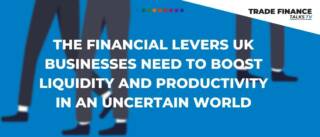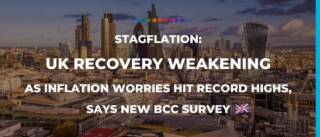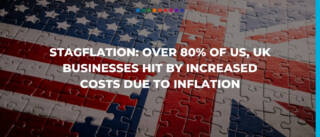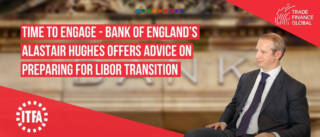ECB board member Isabel Schnabel suggested that further interest rate increases might no longer be necessary due to a significant decrease in inflation, in an interview with Reuters.
In July, British factory production shrank at its swiftest rate in a span of seven months, impacted by rising interest rates and a reduction in new orders. This occurred despite… read more →
The COVID-19 pandemic caused global central banks to take emergency action to support the world’s economies; one such measure was the rapid cut in interest rates to record lows.
Daniel Barbosa of Fex Agro shares his personal experience, lessons learned and adaptability in commodity trading
Accenture released a report on findings from an online survey conducted to determine challenges banks are facing, both in retaining trade finance partners, as well as thwarting competition from fintechs.
The Berne Union released its latest Business Confidence Survey this week amid mounting geopolitical uncertainty. This latest rendition of the quarterly report shows that demand for export credit insurance is… read more →
TFG spoke to one of the world’s largest factoring associations to find out how trade receivables can help solve the liquidity crunch caused by supply chain disruption.
Trade Finance Global (TFG) surveyed firms throughout Europe to gain an understanding of SMEs’ trade finance usage norms and their propensity to pay for new or additional trade finance products and services.
As prices surge and the UK economy continues to shrink, David Brown, founder and chief executive of Hi, writes that businesses need additional financial levers to tackle the current cost of living crisis.
A new survey has found that the UK’s post-pandemic recovery is losing momentum, as inflation worries spread and business sentiment turns negative.
New surveys on both sides of the Atlantic have found that the vast majority of businesses are struggling with inflation, and many are already passing on price hikes to consumers.
The cessation of the London Interbank Offered Rate, or LIBOR, will be one of the most important events affecting trade finance this year.
The notion of ‘debt-trap policy’ has elicited much debate about whether entities that deliberately flex their financial muscle to exert dominance over desperate countries exist. This work highlights its meaning, the actors, and its effects on trade and economic development.
ICC Trade Register 2021 – 6 top takeaways and the low-risk nature of trade finance as an asset class
The 2021 ICC Trade Register summary, on the credit risk profiles of trade finance, supply chain finance and export finance transactions. Read our summary on 38m transactions representing USD $19.2t exposures, and 28% of global trade flows.
Euler Hermes’ newest research found that 15% of the UK’s SMEs are at risk of insolvency in the next four years. Additionally, the research also highlights the impact and success… read more →
 Australia
Australia Hong Kong
Hong Kong Japan
Japan Singapore
Singapore United Arab Emirates
United Arab Emirates United States
United States France
France Germany
Germany Ireland
Ireland Netherlands
Netherlands United Kingdom
United Kingdom















